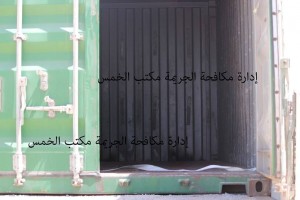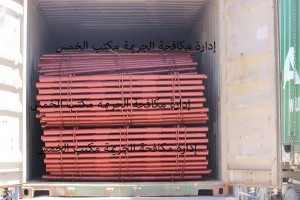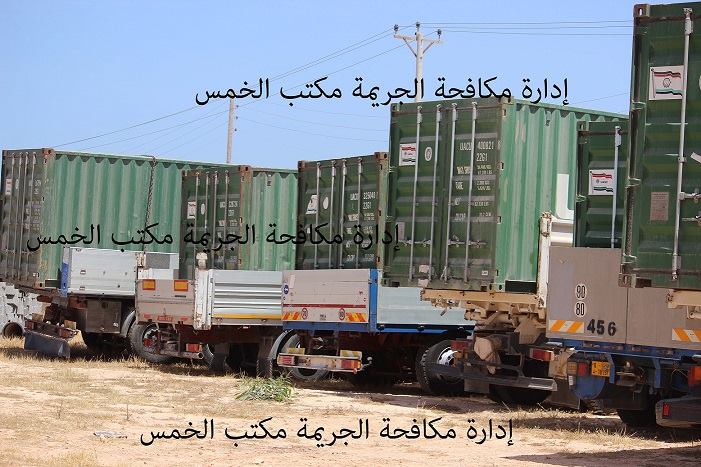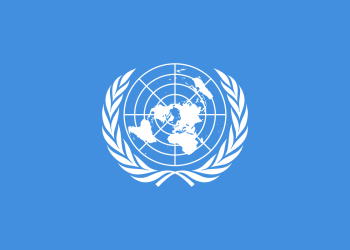By Sami Zaptia.
![Khoms police seizes more Khoms Port . . .[restrict]containers in LC financial corruption (Photo: Khoms Police Counter Crime Unit).](https://www.libyaherald.com/wp-content/uploads/2016/05/159-More-Khoms-contaiers-corruption-6-containers-100516-300x200.jpg)
London, 10 May 2016:
Khoms Police Counter-Crime Unit has seized eight containers after being processed by customs at Khoms Port on Saturday containing undervalued goods as part of Letters of Credit (LC) foreign currency financial corruption.
The LCs were opened for the higher valued aluminium raw material, but some of the containers were discovered totally empty whilst others were loaded with much lower valued building plastic pipes, Khoms police said. The police department did not give the value of the LCs.
It will be recalled that in April, Khoms police had also seized seven containers containing undervalued goods that Khoms customs officials had failed to seize. The LC for that shipment was reported by police to be in the ‘‘millions’’. The containers had been loaded with inexpensive front rows of tea and the rest with even cheaper water.

In March, Khoms police had also reported that it had also seized containers supposedly full of household goods, but again these only had a front row of household goods – with the rest of the containers full of the more lucrative fireworks.
It will be recalled that there have been a number of cases over the last year of money-laundering through the opening of hard currency LCs, only for the alleged criminals to import goods either at the fraction of the value of the LCs – or to even send empty containers to Libya.
There have been reported cases where the beneficiaries of the money-laundering LCs have all together abandoned their containers in Libyan ports.

The Central Bank of Libya and Audit Bureau have been conducting a campaign to counter this phenomenon. Critics have accused the CBL of acting too late.
It will be recalled that Libya, which relies on over 90 per cent of its hard currency based GDP from hydrocarbon revenues is going through an acute economic crisis.
The crash in the country’s oil production due to its domestic conflict as well as the crash in international crude oil prices has left the country with a deficit which it is funding through its rapidly diminishing foreign currency reserves accumulated during the Qaddafi regime. [/restrict]







